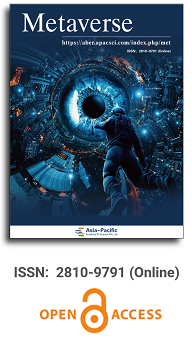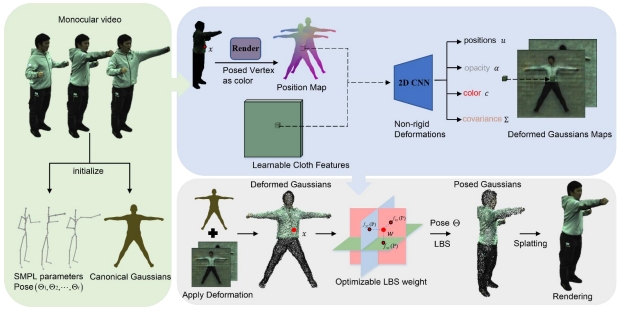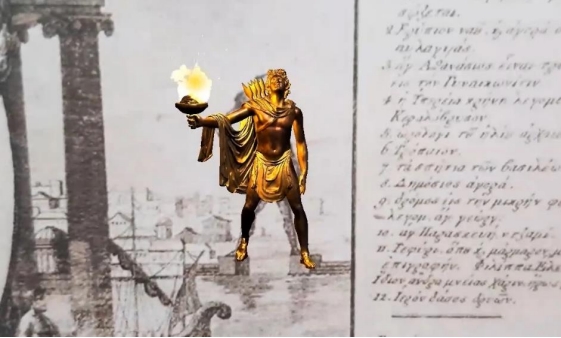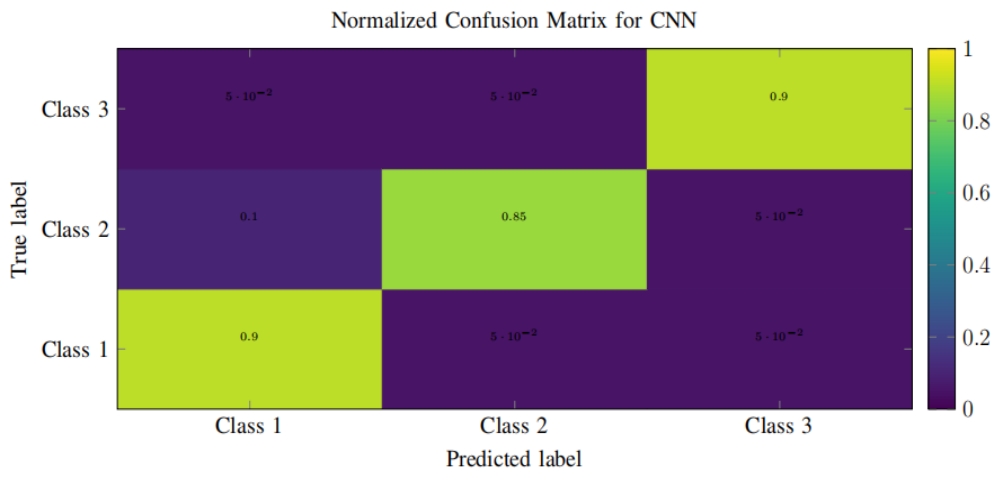
Asia Pacific Academy of Science Pte. Ltd. (APACSCI) specializes in international journal publishing. APACSCI adopts the open access publishing model and provides an important communication bridge for academic groups whose interest fields include engineering, technology, medicine, computer, mathematics, agriculture and forestry, and environment.



Art gamification (and digital/media arts) for special school: New thinking shifts for inclusive metaverse’s engineering
Vol 5, Issue 1, 2024
Download PDF
Abstract
The paper briefly describes the incorporation of several complementary subjects of art, technology, digital, and media to support the implementation of educational accessibility. The general goal is to promote the accessible metaverse for special schools related to the participation of students with different types of disability, assuming the motivation of digital/media arts activities in various interactive tools. This methodology was carried out in a documentary review to investigate the different elements of the virtual world through a metaverse analysis and new interactive tools such as school gamification. The key steps include investigating accessibility needs, creating interactive media, providing training, implementing virtual reality, and promoting social interaction; however, there are ten pillars to highlight the potential of metaverse engineering for inclusive learning in special schools, fostering creativity and collaboration while ensuring accessibility. In conclusion, metaverse educational accessibility in special schools for digital/media arts enables progress and learning through interactive tools, promoting social interaction and inclusion.
Keywords
References
- Zallio M, Clarkson PJ. Designing the metaverse: A study on inclusion, diversity, equity, accessibility and safety for digital immersive environments. Telematics and Informatics. 2022, 75: 101909. doi: 10.1016/j.tele.2022.101909
- Zallio M, Clarkson PJ. Inclusive Metaverse. How Businesses Can Maximize Opportunities to Deliver an Accessible, Inclusive, Safe Metaverse that Guarantees Equity and Diversity. Technical Report ENG-TR.013. Engineering Design Centre Inclusive Design Group, University of Cambridge; 2022.
- Parker C, Yoo S, Lee Y, et al. Towards an inclusive and accessible metaverse. In: Proceedings of the Extended Abstracts of the 2023 CHI Conference on Human Factors in Computing Systems (CHI EA 2023); 23–28 April 2023; Hamburg, Germany. pp. 1–5. doi: 10.1145/3544549.3573811
- Fernandes F, Werner C. Accessibility in the metaverse: Are we prepared? In: Proceedings of the XIII Workshop on Aspects of Human-Computer Interaction for the Social Web; 17 October 2022; Diamantina, Brazilian. pp. 9–15. doi: 10.5753/waihcws.2022.226618
- Dahalan F, Alias N, Shaharom MSN. Gamification and game based learning for vocational education and training: A systematic literature review. Education and Information Technologies. 2023. doi: 10.1007/s10639-022-11548-w
- Camacho-Sánchez R, Rillo-Albert A, Lavega-Burgués P. Gamified digital game-based learning as a pedagogical strategy: Student academic performance and motivation. Applied Sciences. 2022, 12(21): 11214. doi: 10.3390/app122111214
- Thiell ML. Exploring using game-based learning and gamification in a secondary classroom to increase engagement. Available online: https://scholarworks.gvsu.edu/gradprojects/216/ (accessed on 12 October 2023).
- de Carvalho CV, Coelho A. Game-based learning, gamification in education and serious games. Computers. 2022, 11(3): 36. doi: 10.3390/computers11030036
- Bernaschina D. ICTs and media arts: The new digital age in the inclusive school. Alteridad. 2019, 14(1): 39–50. doi: 10.17163/alt.v14n1.2019.03
- Bernaschina D. Incorporation of media arts for Chilean young students with special learning needs. Journal of International Education and Practice. 2022, 5(2): 23–28. doi: 10.30564/jiep.v5i2.5038
- Chen X, Zon D, Xie H, Wang FL. Metaverse in education: Contributors, cooperations, and research themes. IEEE Transactions on Learning Technologies. 2023, 1–18. doi: 10.1109/TLT.2023.3277952
- Bogdanic J, Vuk S. Gamification in art education as a learning approach to sustainable development. In: Proceedings of the 4th Interdisciplinary and Virtual Conference on Arts in Education; 11–12 May 2022; Madrid, España. pp. 257–262.
- Tagie G, Merman H, Taharuddin NS, Ibrahim NA. Gamification in art and design appreciation. Kupas Seni. 2022, 10(2): 93–103. doi: 10.37134/kupasseni.vol10.sp.2.9.2022
- Parmigiani D, Benigno V, Giusto M, et al. E-inclusion: Online special education in Italy during the COVID-19 pandemic. Technology, Pedagogy and Education. 2021, 30(1): 111–124. doi: 10.1080/1475939X.2020.1856714
- Hurwitz S, Garman-McClaine B, Carlock K. Special education for students with autism during the COVID-19 pandemic: “Each day brings new challenges”. Autism. 2022, 26(4): 889–899. doi: 10.1177/13623613211035935
- Yakut AD. Educators’ experiences in special education institutions during the COVID-19 outbreak. Journal of Research in Special Educational Needs. 2021, 21(4): 345–354. doi: 10.1111/1471-3802.12533
- Glessner MM, Johnson SA. The experiences and perceptions of practicing special education teachers during the COVID-19 pandemic. The Interactive Journal of Global Leadership and Learning. 2020, 1(2). doi: 10.55354/2692-3394.1013
- Toquero CMD. ‘Sana all’ inclusive education amid COVID-19: Challenges, strategies, and prospects of special education teachers. International and Multidisciplinary Journal of Social Sciences. 2021, 10(1): 30–51. doi: 10.17583/rimcis.2020.6316
- Delgado-Valdivieso K, Sevilla-Vallejo S, Suarez-Monzón N. Gamification and artistic education. History of education and application to the classroom with educational needs. Journal of Namibian Studies: History Politics Culture. 2023, 33(2): 3253–3275. doi: 10.59670/jns.v33i.967
- Seigneur JM, Choukou MA. How should metaverse augment humans with disabilities? In: Proceedings of the 13th Augmented Human International Conference (AH 2022); 26–27 May 2022; Winnipeg, MB, Canada. pp. 1–6. doi: 10.1145/3532525.3532534
- Codish D, Ravid G. Detecting playfulness in educational gamification through behavior patterns. IBM Journal of Research and Development. 2015, 59(6): 6:1–6:14. doi: 10.1147/JRD.2015.2459651
- Ratan R, Lei Y. What is the metaverse? 2 media and information experts explain. Available online: https://theconversation.com/what-is-the-metaverse-2-media-and-information-experts-explain-165731 (accessed on 12 October 2023).
- Ratten V. The post COVID-19 pandemic era: Changes in teaching and learning methods for management educators. The International Journal of Management Education. 2023, 21(2): 100777. doi: 10.1016/j.ijme.2023.100777
- Wood G. The global market for management education. In: Dameron S, Durand T (editors). The Future of Management Education, 1st ed. Routledge; 2022. pp. 13–27. doi: 10.4324/9781003095903-3
- Bastian A, Liza LO, Efastri SM. Revolutionizing education: How digital literacy is transforming inclusive classrooms in post-COVID 19. Journal of Public Health. 2023, 45(3): e609–e610. doi: 10.1093/pubmed/fdad058
- Nelson A. How COVID-19 has affected special education students. Available online: https://now.tufts.edu/2020/09/29/how-covid-19-has-affected-special-education-students (accessed on 12 October 2023).
- Fabiano A. Metaverse and new educational and inclusive paradigm. Some reflexions. Journal of Inclusive Methodology and Technology in Learning and Teaching. 2023, 3(2): 1–12.
- López-Belmonte J, Pozo-Sánchez S, Moreno-Guerrero AJ, Marín-Marín JA. We’ve reached the GOAL. Teaching methodology for transforming learning in the METAVERSE. A teaching innovation project. Metaverse Basic and Applied Research. 2023, 2(30). doi: 10.56294/mr202330
- Yusril AN. E-accessibility analysis in user experience for people with disabilities. Indonesian Journal of Disability Studies. 2020, 7(1): 106–109. doi: 10.21776/ub.ijds.2019.007.01.12
- Kaddoura S, Al Husseiny F. The rising trend of metaverse in education: Challenges, opportunities, and ethical considerations. PeerJ Computer Science. 2023, 9: e1252. doi: 10.7717/peerj-cs.1252
- Yu W, Chua TJ, Zhao J. Virtual reality in metaverse over wireless networks with user-centered deep reinforcement learning. Available online: https://arxiv.org/abs/2303.04349 (accessed on 12 October 2023).
- Yu W, Chua TJ, Zhao J. User-centric heterogeneous-action deep reinforcement learning for virtual reality in the metaverse over wireless networks. IEEE Transactions on Wireless Communications. 2023. doi: 10.1109/TWC.2023.3277226
- Lacity M, Mullins JK, Kuai L. What type of metaverse will we create? Available online: https://bpb-us-e1.wpmucdn.com/wordpressua.uark.edu/dist/5/444/files/2022/10/2022_02_BCoEWhitePaperMetaverse5493.pdf (accessed on 12 October 2023).
- Lévy P, Zapata Ros M. Visions of three-dimensional or virtual workspaces, metaverses, and education. Virtual reality and learning: Presentation of the special issue and conclusions. Distance Education Journal. 2023, 23(73): 1–8. doi: 10.6018/red.554591
- Felix A. An accessible, disability-inclusive metaverse? Available online: https://www.edf-feph.org/an-accessible-disability-inclusive-metaverse/#:~:text=In%20the%20Metaverse%2C%20users%20can,such%20as%20sign%20 language%20interpretation (accessed on 12 October 2023).
Supporting Agencies
Copyright (c) 2023 Diego Bernaschina

This work is licensed under a Creative Commons Attribution 4.0 International License.

This site is licensed under a Creative Commons Attribution 4.0 International License (CC BY 4.0).

Prof. Zhigeng Pan
Professor, Hangzhou International Innovation Institute (H3I), Beihang University, China

Prof. Jianrong Tan
Academician, Chinese Academy of Engineering, China
Conference Time
December 15-18, 2025
Conference Venue
Hong Kong Convention and Exhibition Center (HKCEC)
...
Metaverse Scientist Forum No.3 was successfully held on April 22, 2025, from 19:00 to 20:30 (Beijing Time)...
We received the Scopus notification on April 19th, confirming that the journal has been successfully indexed by Scopus...
We are pleased to announce that we have updated the requirements for manuscript figures in the submission guidelines. Manuscripts submitted after April 15, 2025 are required to strictly adhere to the change. These updates are aimed at ensuring the highest quality of visual content in our publications and enhancing the overall readability and impact of your research. For more details, please find it in sumissions...






.jpg)
.jpg)

